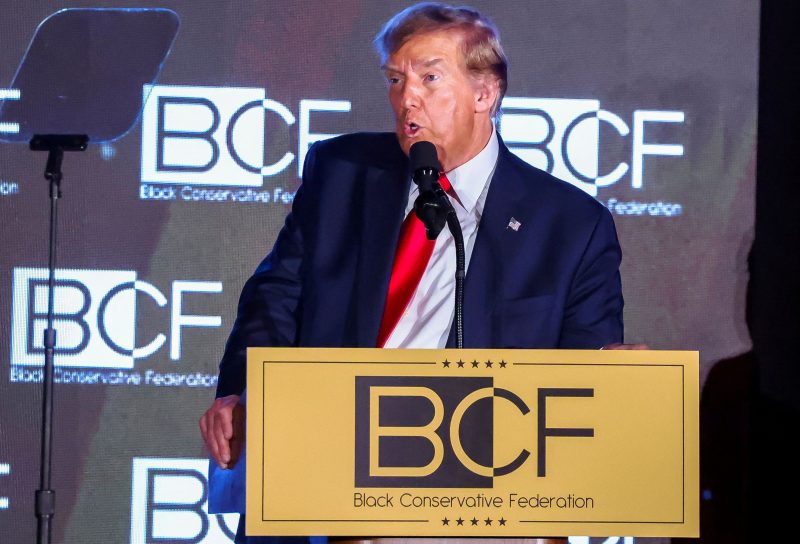In a recent statement, former President Donald Trump claimed that he has long worked “hand in hand” with Black people. This assertion has sparked a significant amount of debate and scrutiny, as Trump’s relationship with the Black community has been one of contention throughout his time in the public eye.
To evaluate the veracity of Trump’s claim, it is essential to consider his actions and policies during his presidency. Trump’s administration was marked by policies and rhetoric that were often deemed divisive and detrimental to minority communities, including the Black population.
One of the most prominent examples of Trump’s policies impacting the Black community was his administration’s handling of criminal justice reform. While Trump signed the First Step Act into law in 2018, a bipartisan criminal justice reform bill aimed at reducing mass incarceration and providing rehabilitation opportunities for inmates, his overall approach to law and order was often criticized for disproportionately targeting minority communities.
Additionally, Trump’s response to racial tensions and incidents of police violence, such as the killing of George Floyd, further highlighted the deep divide between his administration and the Black community. Many critics argued that Trump’s reluctance to acknowledge systemic racism and his inflammatory remarks only exacerbated racial tensions in the country.
Furthermore, Trump’s rhetoric and engagement with Black individuals and communities were often met with criticism and scrutiny. His comments, such as referring to African nations as sh*thole countries and controversial remarks about Black public figures, drew backlash and reinforced perceptions of racial insensitivity.
While it is essential to acknowledge individual instances where Trump may have engaged positively with the Black community, such as his support for criminal justice reform, it is crucial to consider the broader context of his presidency and its impact on minority communities. Trump’s claims of working hand in hand with Black people must be evaluated based on a comprehensive assessment of his policies, actions, and rhetoric during his time in office.
In conclusion, Trump’s assertion of working closely with Black people is met with skepticism and scrutiny due to the overall trajectory of his presidency and the impact of his policies on minority communities. While there may have been isolated instances of collaboration or support for certain initiatives benefiting the Black community, the overarching narrative of his administration’s approach to race relations paints a more complex and contentious picture. It is imperative to critically examine Trump’s claims in light of his presidency’s broader implications for racial equity and social justice.



























